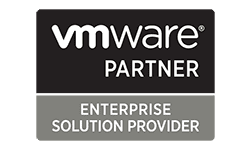Exploring the Benefits of Managed Service Agreements in Education
Transforming K-12 Schools with Managed Service Agreements and Providers
Kelsey Young, Copywriter and Media Specialist
6 Min Read

The Role of Managed Service Agreements in Education: Enhancing IT Support and Efficiency
In today’s digital age, technology is integral to the educational experience. From virtual classrooms to digital learning tools, K-12 schools rely heavily on technology to enhance teaching and learning. However, managing and maintaining this technology can be challenging, particularly for schools with limited IT resources. This is where a Managed Services Agreement (MSA) and Managed Service Providers (MSPs) in education come into play, offering a comprehensive solution to meet the IT needs of educational institutions.
Understanding Managed Services Agreements in Education
A Managed Services Agreement is a contractual arrangement between a school and an external Managed Service Provider. The MSA outlines the scope of IT services provided by the MSP, including network management, cybersecurity, hardware maintenance, software support, and more. The goal is to ensure that the school’s technology infrastructure operates efficiently and securely, enabling educators to focus on their core mission of teaching.
The Role of Managed Services Agreements in Different Types of K-12 Schools
Managed Services Agreements (MSAs) and Managed Service Providers (MSPs) in education can cater to the diverse needs of various types of K-12 schools, including public, private, cyber, and charter schools. Each type of school has unique requirements and challenges, and a tailored MSA can ensure that these institutions receive the specific support they need.
Public Schools
Public schools often face budget constraints and must adhere to strict regulations and standards. An MSA can help public schools by providing cost-effective solutions that optimize their existing resources. For instance, public schools can benefit from scalable IT services that allow them to adjust support levels based on budgetary fluctuations and changing student populations. Additionally, MSPs can help public schools comply with data protection laws like FERPA, ensuring that student data is securely managed. By partnering with an MSP, public schools can also leverage centralized IT services across a district, leading to standardized technology practices and potentially lower costs.
Private Schools
Private schools may have more flexibility and resources compared to public schools, allowing them to opt for more customized and advanced IT services. An MSA can enable private schools to implement cutting-edge technologies, enhancing their educational offerings and maintaining their competitive edge. MSPs can provide specialized services such as high-level cybersecurity measures, advanced learning management systems, and tailored educational software. Private schools often emphasize branding and prestige, and an effective MSA can support these goals by ensuring a seamless and high-quality technological experience for students and staff.
Cyber Schools
Cyber schools, which operate entirely online, have distinct needs that are well-served by Managed Services Agreements. The primary focus for cyber schools is on robust, scalable online infrastructure that supports virtual classrooms, secure access, and uninterrupted learning experiences. MSPs provide critical services such as cloud-based infrastructure management, 24/7 technical support, and advanced cybersecurity protocols to protect against cyber threats. Given the reliance on technology, MSAs for cyber schools often include comprehensive service level agreements (SLAs) that guarantee high uptime and quick resolution of any technical issues, ensuring that students and educators can always access the necessary resources.
Charter Schools
Charter schools, known for their innovation and flexibility, often experiment with new educational models and technologies. MSAs for charter schools can be highly adaptable, offering a range of services that support the unique missions and goals of these institutions. Charter schools may use MSAs to implement new learning technologies, integrate various educational tools, and maintain a secure IT environment. Given their semi-autonomous nature, charter schools can negotiate MSAs that provide a balance of cost-effectiveness and high-quality services. This can include tailored IT solutions that align with the specific curriculum and educational approach of the charter school.
The Importance of Managed Service Providers in Education
Managed Service Providers play a crucial role in supporting educational institutions by offering specialized IT services and expertise. For schools, especially those with limited IT resources, partnering with an MSP can bring numerous benefits.
Benefits of MSPs in Education
- Resource Augmentation: Schools can access specialized skills and knowledge that may not be available in-house. MSPs provide expertise in areas like cybersecurity, network architecture, and specific educational software, enhancing the school’s IT capabilities.
- Cost Management and Budget Predictability: MSPs offer predictable monthly costs, making budgeting easier for schools. This can lead to cost savings compared to hiring and maintaining a full-time IT staff, especially when considering training and benefits.
- Focus on Core Educational Activities: By outsourcing routine IT tasks, such as system monitoring and maintenance, the school’s internal IT staff can focus on more strategic initiatives, like integrating new technologies into the curriculum or developing digital resources.
- Enhanced Security and Compliance: MSPs provide advanced cybersecurity services, including continuous monitoring, threat detection, and incident response. This is essential for protecting sensitive data and ensuring compliance with legal regulations.
- Access to Latest Technologies and Innovations: MSPs stay up-to-date with the latest technological advancements. They can help schools implement new technologies, ensuring they remain competitive and provide the best possible educational experience.
- Continuous Support and Monitoring: Many MSPs offer 24/7 support and monitoring, ensuring that any issues are promptly addressed. This is particularly beneficial for schools with extensive online components or cyber schools that require constant uptime.
- Strategic Planning and Consultation: MSPs can assist schools in developing long-term IT strategies that align with their educational goals. This includes advising on technology investments and managing relationships with other technology vendors.
Addressing Concerns About Implementing an MSA
While MSAs offer numerous benefits, schools may have concerns about implementing them. Here are some common concerns and how to address them:
- Cost Concerns
- Concern: Schools may worry about the expense of outsourcing IT services.
- Solution: Choose an MSP with transparent pricing and clearly defined services. Conduct a cost-benefit analysis to compare in-house costs versus outsourcing, highlighting potential savings and efficiencies. Opt for scalable services that can be adjusted based on budget constraints.
- Loss of Control
- Concern: Schools may fear losing control over their IT infrastructure.
- Solution: Establish clear SLAs and KPIs to set expectations for service quality. Foster a collaborative relationship with the MSP, ensuring regular communication and joint planning. Retain access to systems and data and establish oversight mechanisms.
- Data Security and Privacy
- Concern: Schools handle sensitive information, raising concerns about data security.
- Solution: Work with an MSP that demonstrates strong data security practices, including robust encryption and secure data storage. Ensure compliance with relevant data protection laws and schedule regular security audits.
- Dependence on External Providers
- Concern: Schools may worry about becoming too dependent on an MSP.
- Solution: Include a detailed exit strategy in the MSA, covering data transfer and service continuity. Maintain some level of in-house IT expertise and conduct regular performance reviews to ensure accountability.
- Service Quality and Reliability
- Concern: Concerns about the quality and reliability of the services provided.
- Solution: Choose an MSP with a strong reputation and positive references from similar institutions. Include detailed SLAs in the MSA and consider starting with a trial period to evaluate the MSP’s performance.
Final Thoughts
Managed Services Agreements and Managed Service Providers play a vital role in supporting educational institutions by providing comprehensive IT services and expertise. By addressing concerns and working collaboratively with MSPs, schools can enhance their IT capabilities, ensure data security and compliance, and focus on delivering high-quality education. In the rapidly evolving digital landscape, leveraging the expertise of MSPs is a strategic move that can lead to a more efficient, secure, and innovative educational environment.




